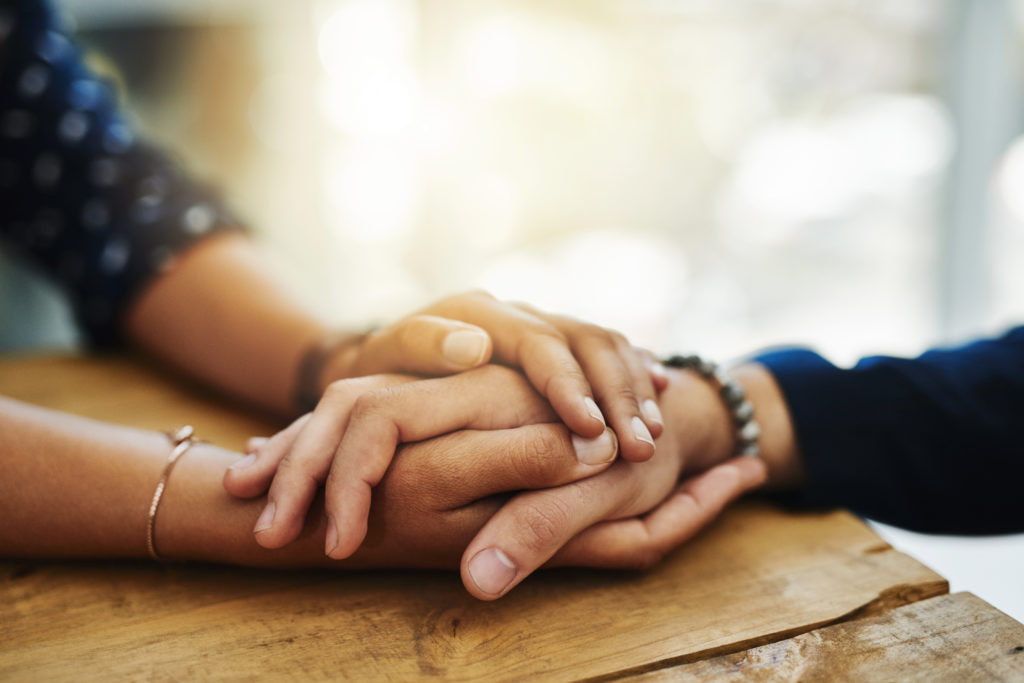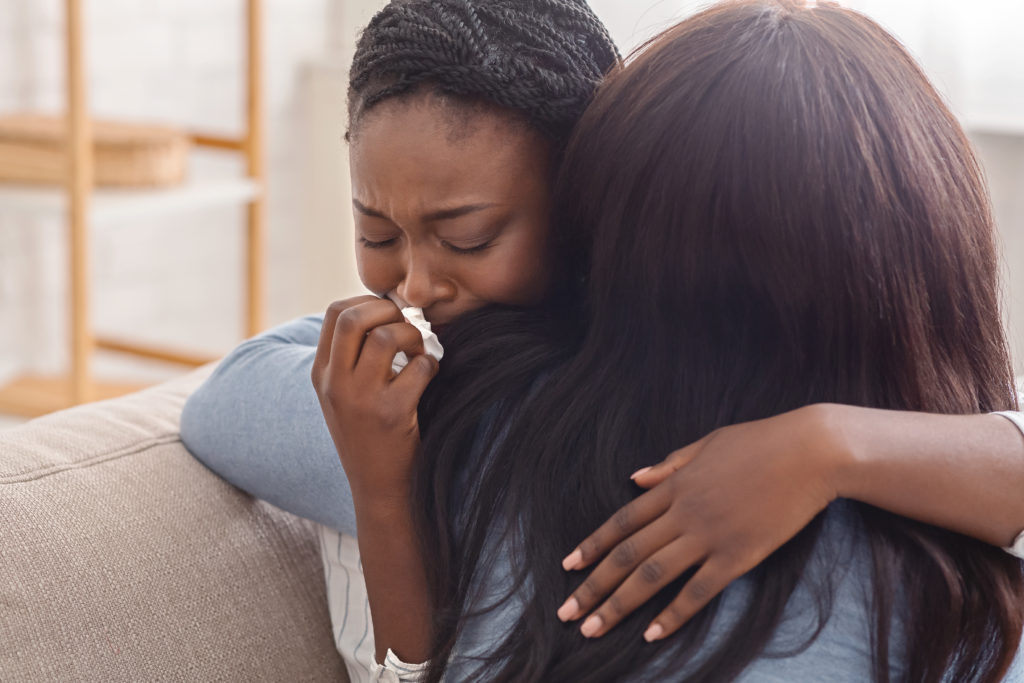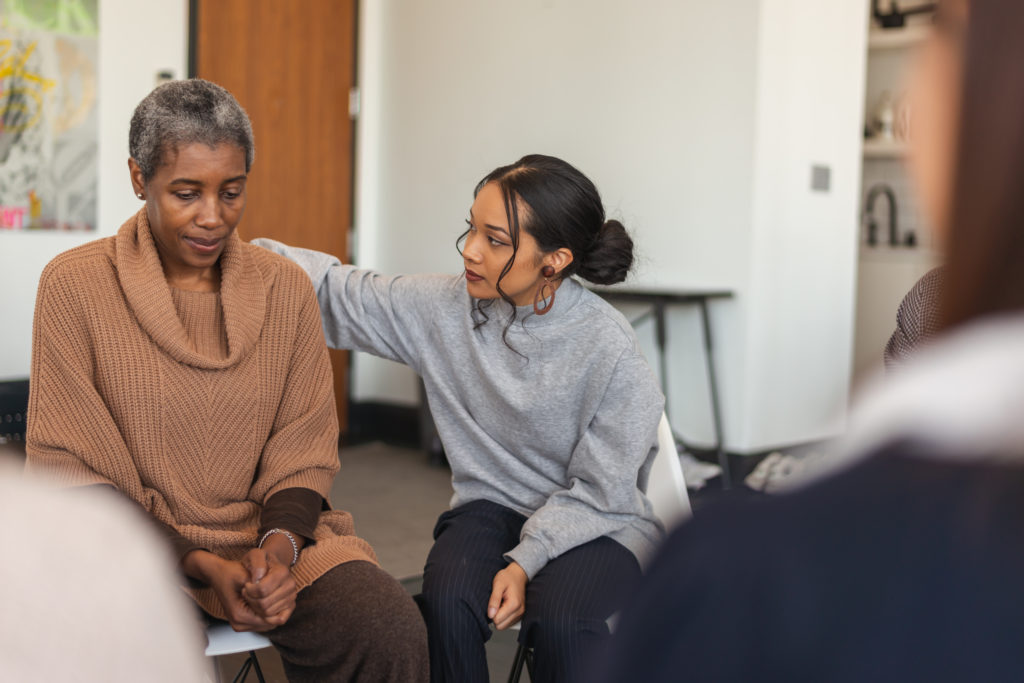My journey with grief began when my late husband, Steven, was diagnosed with glioblastoma in 2009. That day our hopes, dreams, and expectations for the life we had created for our family were forever changed. His death just 22 months later added to the grief I was already experiencing.
Like so many, I was bereft and overwhelmed. I was having a hard time figuring out how to put one foot in front of the other. Three and a half years later, I discovered the Grief Recovery Method because I wanted to be present for others in their grief. I received my certification to be a grief recovery specialist in 2014, so that I could bear witness, hold space, and help educate individuals grieving a loss. Today, I want to share some insight about what grief is and where you can find support following the loss of a loved one to a brain tumor.
What is Grief?
Grief is the conflicting feelings caused by the end of or change in a familiar pattern of behavior, and it’s a normal and natural reaction to a loss. The death of a loved one to a brain tumor brings a myriad of feelings — sadness, fear, anxiety, and isolation, just to name a few. A loved one is not limited to a familial relationship. It can include friends, co-workers, teammates, etc.
When someone’s loved one dies, a conflicting feeling that can emerge is a sense of relief. They feel pain, and there is also this relief for the one who passed and sometimes for us. It’s completely normal to feel this way even though many may experience feelings of guilt around it. Please note that the true definition of guilt comes from the intent to harm or hurt another, which is not what a griever is truly feeling. A griever may be feeling badly or regretful. That’s not the same as guilt.
People are comfortable talking about death, but most people aren’t comfortable talking about the grief and the pain that people are experiencing. The journey through that grief process is painful, and societal misconceptions can make it even more challenging.
Most of us have this belief system that there are five stages to grief. Well, grief isn’t that tidy. It’s not wrapped up in a box where you’re done grieving when you reach the stage of acceptance. The five stages came from the author’s experience with terminally ill patients facing their imminent death. The stages were never intended to apply to how someone would process the passing of a loved one. Grievers may experience some of the stages, but it’s not a linear process because grief is all over the place.
Time doesn’t heal grief. It’s what you do with that time. If you have a broken arm, you’re not just going to sit there and wait for it to heal itself. You have to see a doctor and get a cast applied to your broken arm. Similarly, you have to take steps to acknowledge, feel, and move through your grief to get to that place of joy where you can hold those loving and fond memories.
Additionally, I recommend finding a therapist, a grief recovery specialist like me, or a support group that specializes in grief and understands grief. You want someone trained in grief to support you.
Grief Support Group
Grievers feel so isolated and alone in their grief because of the misinformation we’ve been given with the “don’t feel bad or be strong or it just takes time” messages that we hear time and time again. Other grievers fear that they’re going to be dismissed when they talk about their pain.
A grief support group gives you space for one hour a month to feel yucky and heard. You get to share your pain, and you get to share your story. You get to talk about your loved one without anyone saying, “Oh, but…oh, at least…don’t feel sad.”
The bereaved brain tumor community can attend NBTS’s monthly Grief Support Group that I help facilitate. The Grief Support Group welcomes anyone who has lost a loved one to a brain tumor and offers participants the space to be heard while also providing tools and resources to support individuals through their grieving process.
In this group, we have all experienced a similar loss — a loved one who died from a brain tumor. But here’s the one thing I’m going to tell you: I don’t know how you feel because your loss is your loss, and your relationship is unique and individual to you. Nobody else knows how you feel. At very best, I can say to you, “I know how I felt when I experienced my loss.”
Ultimately, we strive to reach the point where the griever carries hope rather than pain. Grievers need to feel like they will not be mired down in this pain forever. The griever needs to know they will feel joy again while carrying those beautiful, fun-loving memories of the person who passed away. It is my hope that this Grief Support Group provides a safe space for grievers to share those feelings while receiving the support necessary after such a devastating loss.





